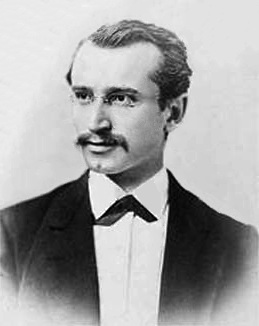Top Qs
Timeline
Chat
Perspective
Alexander von Brill
German mathematician (1842–1935) From Wikipedia, the free encyclopedia
Remove ads
Alexander von Brill (born Alexander Wilhelm Brill; 20 September 1842 – 18 June 1935)[1]: 17 was a German mathematician.
Remove ads
Biography
Born in Darmstadt, Hesse, Brill was educated at the University of Giessen, where he earned his doctorate under supervision of Alfred Clebsch. He held a chair at the University of Tübingen, where Max Planck was among his students.
In 1874, Max Noether and von Brill introduced the study of special divisors known as Brill–Noether theory.[2]: vii
In 1933, he joined the National Socialist Teachers League as one of the first members from Tübingen.[1]: 21
Remove ads
Legacy
The London Science Museum contains sliceform objects prepared by Brill and Felix Klein.[3]
Selected publications
- von Brill, Alexander; Noether, Max (1874). "Ueber die algebraischen Functionen und ihre Anwendung in der Geometrie". Mathematische Annalen. 7 (2): 269–316. doi:10.1007/BF02104804. JFM 06.0251.01. S2CID 120777748. Retrieved 2009-08-22.
- Vorlesungen über ebene algebraische Kurven und Funktionen. 1925.[4]
- Vorlesungen über allgemeine Mechanik. 1928.[5]
- Vorlesungen zur Einführung in die Mechanik raumerfüllender Massen. 1909.
- Graphische Darstellungen aus der reinen und angewandten Mathematik. 1894.
- with Max Noether: Über algebraische Funktionen und ihre Anwendung in der Geometrie. Mitt. Göttinger Akad.1873, and their article with the same name in the Mathematischen Annalen Bd.7, 1874, Online
- with Max Noether: Die Entwicklung der Theorie der algebraischen Funktionen in älterer und neuerer Zeit. Jahresbericht DMV 1894.
- Das Relativitätsprinzip. Teubner 1912.[6]
- Über Kepler's Astronomia nova. Stuttgart 1930. (15 pp.)
See also
References
External links
Wikiwand - on
Seamless Wikipedia browsing. On steroids.
Remove ads

